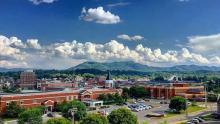BrightRidge Creating 10 Gig Connectivity in Tennessee Communities
About ten years ago, we first reported on Johnson City, Tennessee. At that time, the community was in the process of installing fiber to improve reliability for their public electric utility. The Johnson City Power Board (JCPB) discussed the possibility of offering broadband via the new infrastructure, but they weren’t quite ready to move forward. Now JCPB has renamed itself BrightRidge and has not only started connecting local subscribers with fiber optic connectivity, but is offering 10 gig symmetrical service.
Past Plans
Johnson City has considered more than one model over the years before realizing the current plan. After initial consideration, they decided to move forward with a public-private partnership to first serve businesses and later residential subscribers. Later, they concluded that a public-public partnership with the Bristol Virginia Utility Authority (BVU) was a better option. After difficulties in Bristol with political corruption and state restrictions, however, that ultimately ended public ownership of the BVU, Johnson City was considering options again.
In 2017, they commissioned a fresh feasibility study to build on lessons learned from their own and others’ experiences and look deeper in the the possibilities of a publicly owned broadband utility.
Johnson City is located between Chattanooga and Bristol. Both cities have fiber infrastructure which has helped spur economic development. Being sandwiched in between these two communities requires Johnson City to be able to compete or contend with the possibility of losing employers and residents who want or need better connectivity.
The JCPB also decided in 2017 to change their name to BrightRidge; they remain a “not-for-profit, local power company.”
An Eight Year Plan



